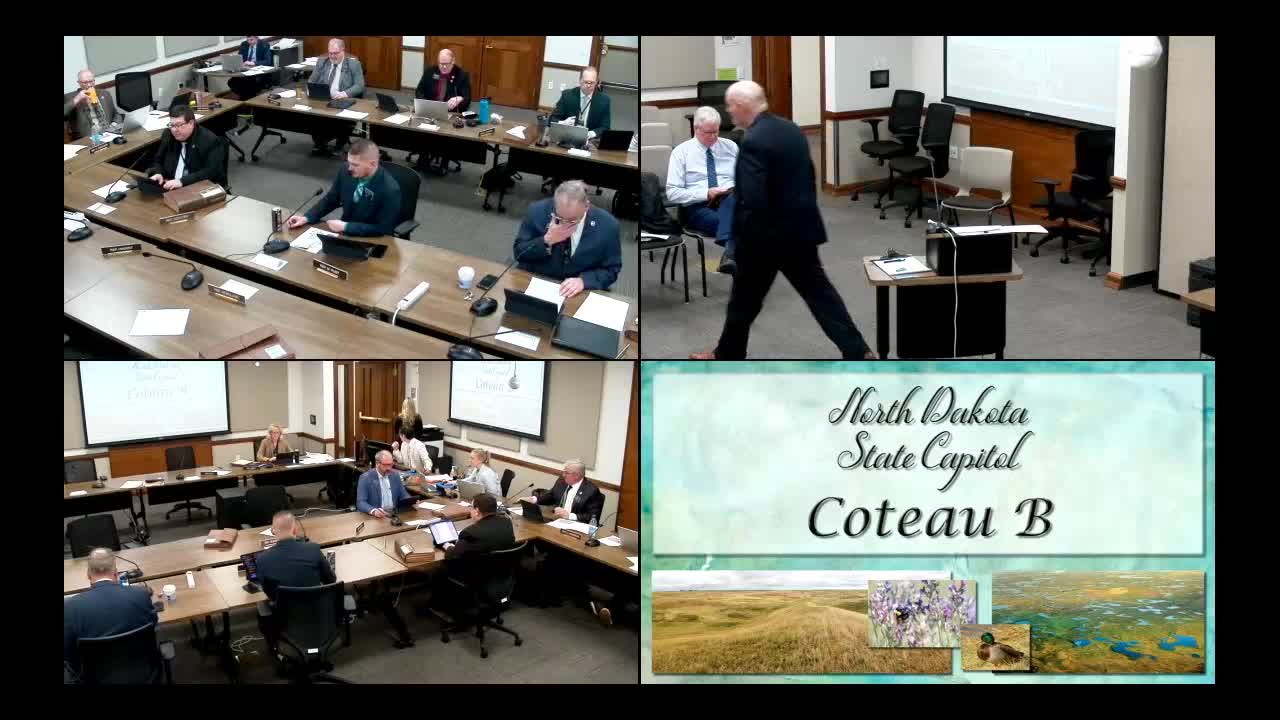Committee recommends due pass for bill requiring joint county boards on cross-county water projects
Get AI-powered insights, summaries, and transcripts
Subscribe
Summary
The House Energy and Natural Resources Committee voted to give a due-pass recommendation to Senate Bill 22-76 as amended, a measure that would require counties sharing water projects to form joint boards with equal representation and a prescribed dispute-resolution process including mediation, administrative appeal and court as a last resort.
The House Energy and Natural Resources Committee voted to recommend a due pass for Senate Bill 22-76 as amended, a bill that would require counties with shared water projects to form joint boards with equal representation and a stepped dispute-resolution process.
Supporters said the measure aims to reduce costly litigation and stalled projects that result when adjacent counties do not coordinate on water management. "We've been working on this quite a long time, and, it's been actually years," Senator Larry Lueck said. "I am happily coming to you to maybe put an end to, 2276 in a good way." Lueck said the bill pushes counties toward an enforceable path for cooperation after earlier, voluntary efforts produced little change.
The amendment before the committee formalizes how joint boards would be formed and how to resolve potential deadlocks. Danny Quizelle, speaking for the North Dakota Water Resource Districts Association, described the amended deadlock process: "If you had that situation, the first step would be to go to mediation. The ag department, the commissioner's office has mediation services that are offered for other types of water disputes. They were comfortable with taking this on as well if needed." Quizelle said an unsuccessful mediation would be followed by an appeal to the Department of Water Resources and, if necessary, ultimately to the courts.
The amendment also adds clarifying language to allow a remaining district or districts to proceed if one district refuses to join a joint board — inserting the words "or district" in several places of the draft to cover that scenario, per Quizelle's recommendation.
Committee members asked about enforcement mechanics. Representative Heinert raised concerns about a process that could end with one county suing another via the county auditor. Chairman Porter and others responded that the bill focuses the levy and collection functions through local county processes and that the process aims to address obstacles before litigation is necessary.
The committee approved amendment 01005 (moved by Representative Haggard; seconded by Representative Olson) and then voted to recommend a due pass on the bill as amended (motion moved by Representative Hager; seconded by Representative Olson). During the roll call on the due pass recommendation, the following members recorded votes: Chairman Porter: yes; Vice Chair Anderson: yes; Vice Chair Novak: yes; Representative Convey: yes; Representative Doctor: yes; Representative Haggard: yes; Representative Heinert: yes; Representative Johnson: yes; Representative Marshall: yes; Representative Olsen: yes; Representative Ruby: yes. The clerk announced the tally as 11 yes, 0 no, 2 absent; the motion prevailed.
Supporters urged that the new statute provide a predictable, local-level path to plan and finance cross-boundary water projects, arguing it could save money and reduce lawsuits. "It is costing the state a lot of money. It's costing each and every one of us a lot of money and angst and lawsuits," a member of the public and longtime water contractor told the committee after the vote. He added that technical water management is straightforward but that personalities have impeded cooperation.
The bill will be carried forward under the committee's procedural process. Committee members and bill proponents said they expect the mediation and administrative appeal steps to reduce litigation and help projects move forward, though they acknowledged litigation remains a last-resort option.
